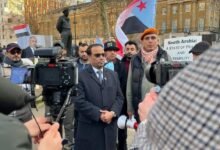U.N. will not help Myanmar with long-term camps for Rohingya – document
The United Nations’ refugee agency will not provide humanitarian assistance to Rohingya Muslims who return to Myanmar if they are interned in camps, according to an internal position paper circulated days before the initial repatriation is due to start.
The confidential briefing paper, dated this month and reviewed by Reuters on Tuesday, outlines the position of the United Nations High Commissioner for Refugees (UNHCR) on the repatriation process, and reflects a desire not to be drawn into supporting long-term camps for the Muslim minority.
A UNHCR spokeswoman said it did not comment on leaked documents.
Myanmar and Bangladesh agreed in late October to begin in mid-November the repatriation of some of the hundreds of thousands of Rohingya who fled Myanmar last year to escape an army crackdown, despite warnings by the U.N. and aid agencies that conditions were not yet safe for their return.
Myanmar has been building transit centers for the refugees that it says will be temporary, but many Rohingya say they fear the sites could become permanent because of harsh restrictions on movement imposed on the largely stateless minority.
The UNHCR paper says the agency “will not provide individual assistance in situations of encampment, including in reception facilities or transit camps, unless they are clearly temporary in nature and used for the sole purpose of facilitating free movement to places of returnees’ origin or choice”.
The document, which was circulated to diplomats, also advises other agencies not to assist with any such camps.
Tens of thousands of Rohingya have been languishing in U.N-supported camps and villages across western Myanmar since 2012, when they were driven out of their homes during a previous wave of ethnic violence. They were told the camps, razor-wire ringed areas they are forbidden to leave, would be temporary.
Myanmar government spokesman Zaw Htay did not answer calls seeking comment on Tuesday.
The U.S. State Department said in a statement on Sunday any returnees to Myanmar “must have freedom of movement and not be confined to camps”.
More than 700,000 Rohingya fled to Bangladesh to escape a sweeping army crackdown in the north of Myanmar’s Rakhine state last year. U.N-mandated investigators have accused the Myanmar military of “genocidal intent” and ethnic cleansing. Myanmar denies almost all of the allegations against its troops, saying security forces were battling terrorists.
In the document, the UNHCR also outlines its involvement in the repatriation process organized by Myanmar and Bangladesh, saying that its officials will seek to ascertain whether several thousand Rohingya on a list of refugees identified for repatriation to Myanmar want to go back.
Last week, more than 20 individuals on the list of potential returnees submitted by Bangladesh told Reuters they would refuse to return, saying they feared for their safety.
FILE PHOTO: An aerial view of Hla Phoe Khaung transit camp for Rohingya who decide to return back from Bangladesh, is seen in Maungdaw, Rakhine state, Myanmar, September 20, 2018. Ye Aung Thu/Pool via REUTERS/File Photo
More than 1 million Rohingya lived in Rakhine before the exodus of refugees that began in August last year. The state has long been riven with tension between ethnic Rakhine Buddhists and the Rohingya, who are mostly denied citizenship and face severe restrictions on their movement.
The memo seen by Reuters reiterates the UNHCR’s stance that conditions in Rakhine are not conducive to returns.
That view was repeated by UNHCR Assistant High Commissioner for Protection Volker Turk on Tuesday.
“I think we are still not at that stage where the conditions are there that we would be able to facilitate or promote returns at this point in time,” Volker told a news briefing in Geneva.
“So if there are indeed people who want to return, we have to absolutely make sure that we are able to certify that they do this on (the basis of) a free and informed choice.”
The UNHCR called in the document for Myanmar to release more information about plans to return and reintegrate the Rohingya.
On Sunday, Myanmar’s Minister for Social Welfare Win Myat Aye said preparations had been made for 2,251 people to be transported to two transit centers by boat on Thursday, while a second group of 2,095 could follow later by road.
Once processed, they would be sent to another center where they would be housed and fed until they could be resettled, he said.
Returnees would only be allowed to travel within Maungdaw township if they accepted National Verification Cards, an identity document most Rohingya reject because they say it brands them as foreigners.
Authorities have said they plan to build houses in 42 sites across Rakhine, but have not revealed the locations.
In its memo, the UNHCR says the organization would provide support to refugees in “resettlement sites and model villages” in Rakhine state only if these were “located in places of refugees’ origin or choice”.





